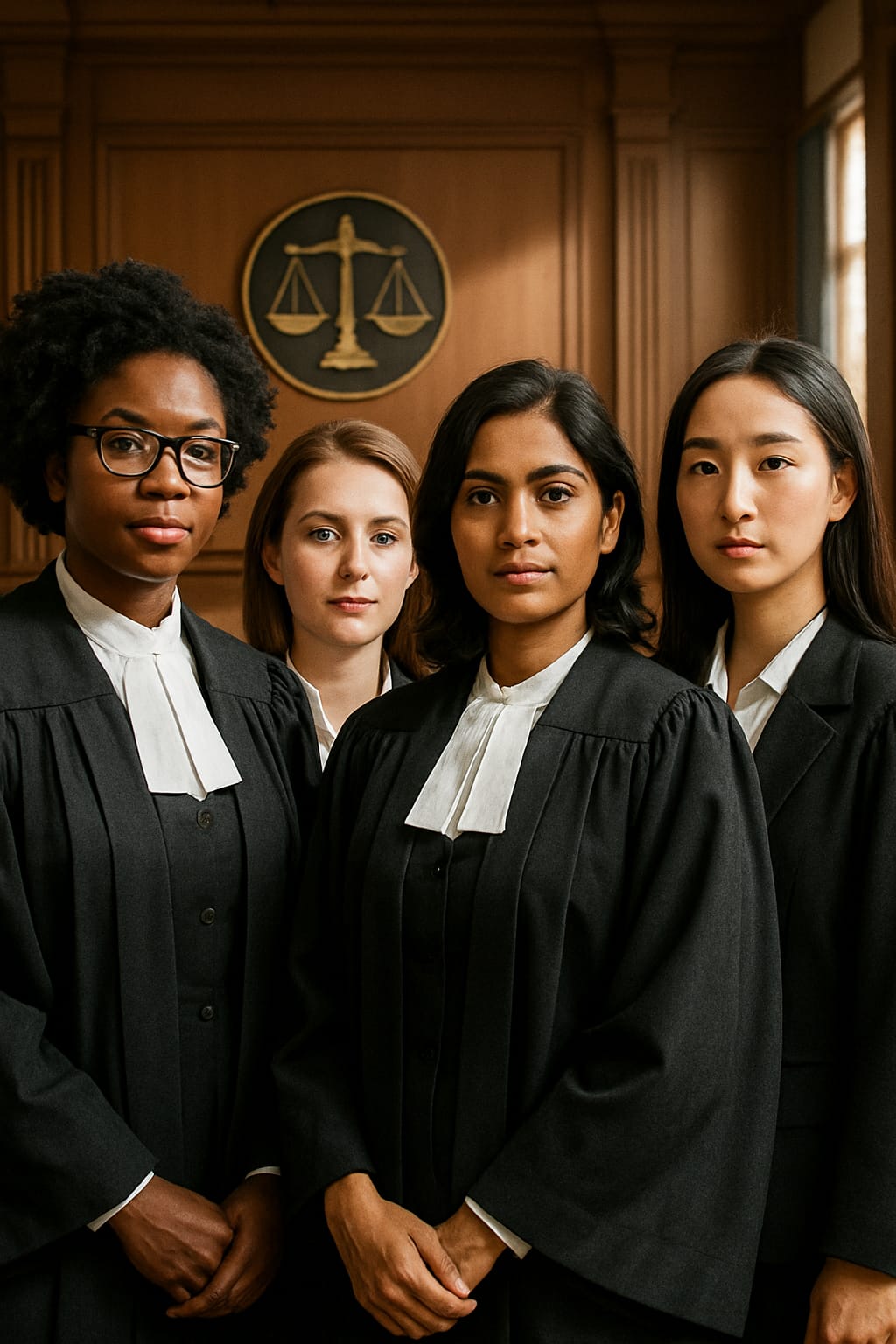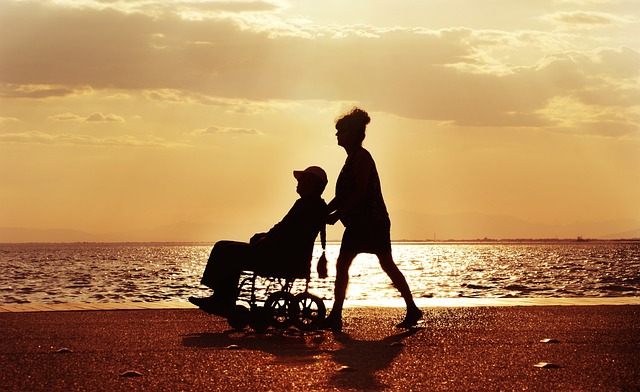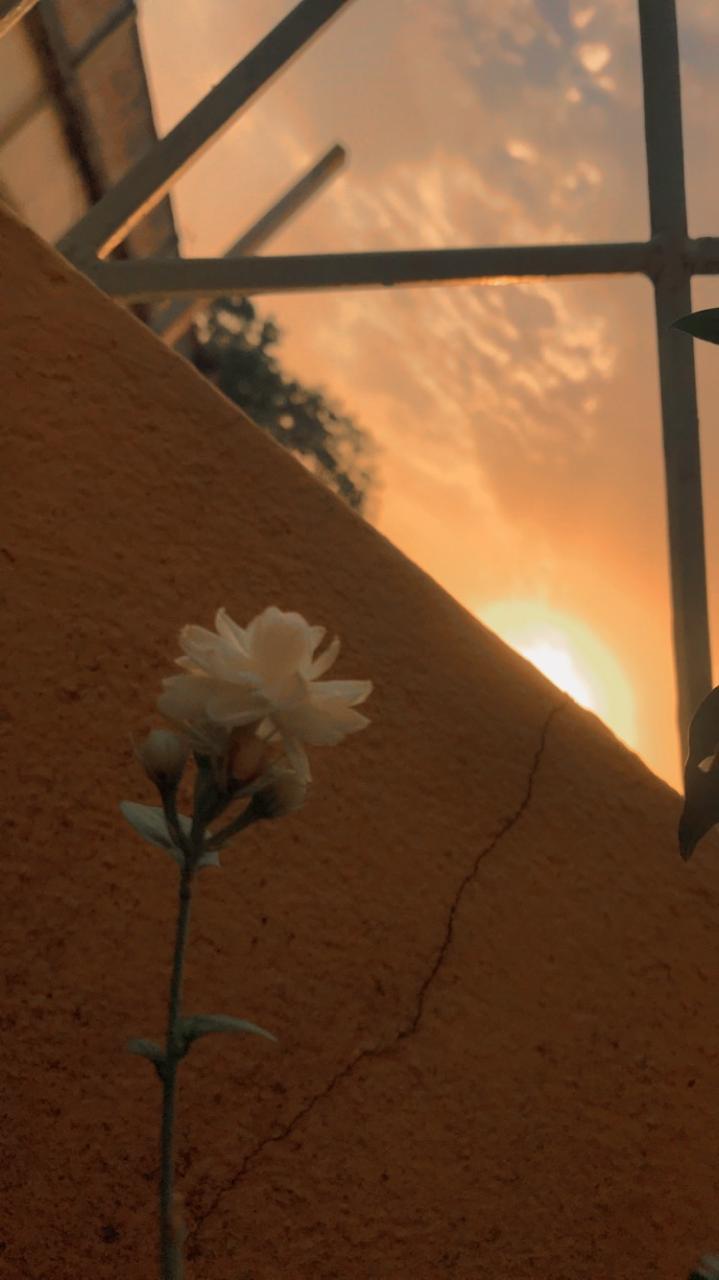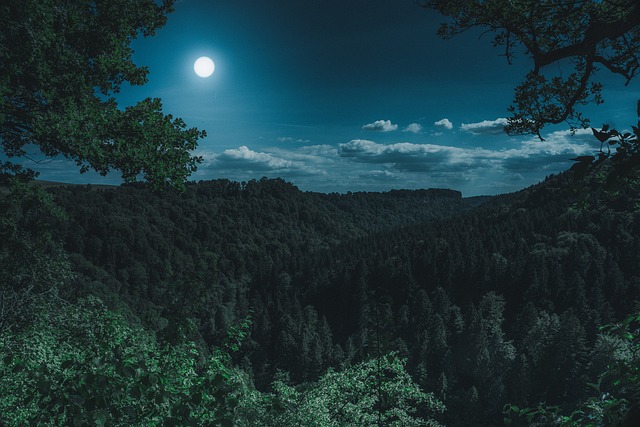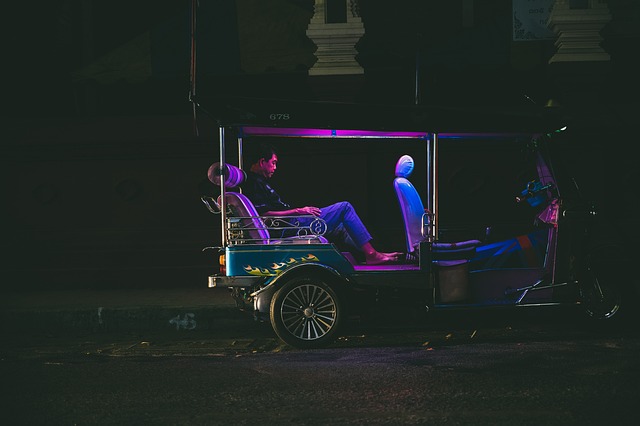Lionesses In The Indian Legal Field
As per the stats, women make up just 15.31% of Indian lawyers and 13% of High Court judges. It’s not just numbers; it’s bias, structural gaps, and societal pressure speaking loud. Even though more women are graduating from law schools today, when it comes to career growth, the ladder is still shaky.
But, it’s not all a dull picture. There are brighter shades too; the legal field is evolving, thanks to tech, law reforms, infinite determination, courage, and many fierce legal battles fought by women themselves. The wave that started with the Legal Practitioners (Women) Act, 1923, wasn’t just a law but a breakthrough. It opened the courtroom doors, and women didn’t just walk in; they showed up with power, passion, and purpose. Since then, they’ve been proving wrong everything they were once told they couldn’t be.
Female Advocates Who Made History
“The best protection any woman can have is courage.” — Elizabeth Cady Stanton.
Yes, the sound of courage is so loud that when it is directed in a right manner then the thread of protection unfolds in.
Look at this point through the lenses of some courageous women warriors in a legal field-
A] Fathima Beevi
The lady who was one of the 5 ladies pursuing a law degree in her class won many hearts. The first female judge of the Supreme Court, who did a law degree at a law college in Trivandrum, was also the first Muslim woman in the higher judiciary and the first woman holding the position of Supreme Court judge in an Asian country.
Challenges faced by her:
1] In the middle of patriarchal norms where women were and still are resisted from entering the legal field, Fathima Beevi didn’t let that kill her dedication. She wasn’t affected by the noise; instead, she let her victory affect the patriarchal mindset.
2] She stood strong even when she was accused of siding with the state ruling party. When her report was seen as biased and questioned by the union cabinet, she didn’t flinch. She kept her head held high.
3] She didn’t just build her legal backbone; she inspired many others along the way. Her approach to equality and constitutional rights wasn’t just strong; it was loud enough to shake the silence.
Legal Developments-
1] In Scheduled Caste & Weaker Section Welfare Association v. State of Karnataka (1991), it wasn’t just a legal battle; it was the voice of the marginalized rising against arbitrary provisions. The SC/ST welfare organization took a stand, and Fathima Beevi, who was part of the bench, ensured the principle of natural justice wasn’t just spoken of but upheld. She became the voice for those who are left voiceless.
2] Her journey wasn’t built overnight. From being the Chief Judicial Magistrate in 1972 to serving as District & Sessions Judge (1974–80), then as a Judicial Member of the Income Tax Appellate Tribunal, and finally stepping into the Kerala High Court in 1983, every chapter spoke of grit, grace, and determination.
3] Even after her time, the recognition followed. In 2023, she was honored with the Kerala Prabha Award, and in 2024, she was posthumously conferred with the Padma Bhushan.
B] Justice Anna Chandy–
Justice Anna Chandy wasn’t just the first woman judge of a High Court, she was a lioness who roared through the patriarchal walls of Indian legal history.
Born in Trivandrum, she carved her name into the books of time. In 1937, she became the first woman judge in an Indian district court. And in 1959, she created history again by becoming the first woman judge of the Kerala High Court.
Challenges faced by her-
1] She fought for women’s rights with a fire that could not be tamed. For her, progress meant rising with others.
2] She lost her father when she was very young, but never lost her faith in hard work and its rewards.
3] As the first woman in Kerala to earn a law degree, she battled societal norms head-on and won.
Legal Developments-
1] She founded Shreemati– the first women’s magazine in Malayalam, giving voice to countless unheard stories.
2] She advocated for birth control clinics when the topic was still taboo.
3] She challenged the gender bias in Section 497 IPC, asking why only men were punished for adultery. Equality, she believed, must go both ways.
4] She also defended the rights of the accused, knowing that justice must be balanced, not biased.
C] Cornelia Sorabji
Meet the first female lawyer of India and Britain, a woman who also became the first to study at Bombay University. Her academic victories led her to Oxford, where she became the first Indian woman to study law.
Challenges faced by her:
1] Her father got her admitted to college when girls weren’t even permitted to dream of such an education. Together, they broke the ceiling.
2] Even after acquiring her law degree, she was hindered from taking up cases for almost 25 years until the law that denied her was dissolved.
3] She stood alone in a space where both British rule and Indian orthodoxy doubted her every move. But she never stepped back.
Legal developments she pushed for:
1] In 1909, Cornelia was awarded the Kaisar-i-Hind Medal for her tireless efforts to reform the condition of women and for her undeterred opposition to child marriage and the injustice faced by widows.
2] She worked vigorously for the Purdahnashins—women who lived behind curtains, legally unrepresented and unheard.
3] For years, she served as a legal advisor to women and children in provincial courts, and as the ‘Lady Assistant’ to the Court of Wards, handling sensitive matters with depth and wisdom.
Contemporary Female Advocates Who Are Doing Wonders
A] Karuna Nundy
Be amazed at this personality who is fighting to fight women’s rights injustices hidden behind the bias of some laws.
Karuna Nundy, a woman from India, is a prominent lawyer and a law graduate from Cambridge University who is brave inside and outside the courtroom, weaving laws around workplace harassment, marital rape bias, and much more.
In 2017, Karuna Nundy wrote an open letter to Indian women, laying out the protections in the country’s Constitution if they are raped, assaulted, seeking an abortion, or demanding fair treatment from an employer.
“I write to you today so you will know your power,” she wrote.
Other hooking words by her:
“People need to start seeing women as full citizens, full individuals, with the right to a taste in music, with the right to go to work, to express their own sexualities the way they wish. I think that’s something that can come through conversation but will also come with power.”
Legal Developments-
1] She was a powerful voice in the Bhopal Gas Strategy case of 1984, where the battle between economic development and industrial accountability stood on prime ground.
2] She polished her legal edge by working in international tribunals before returning to India.
3] She drew national attention in the online free speech case, where voices were being silenced, and she represented the campaigners.
Challenges Faced by Her
1] Despite being a woman who stood with men to envision women’s issues as human issues, she taught us a valuable lesson.
2] She challenged the norm by involving her clients in every detail of the case — while some lawyers delay hearings for more fees, this lady projected strong work ethics, saying, “My clients are my partners in every detail.”
3] She chose to put forward the light of her own motherland over a well-paid job after Cambridge, as she wished to wrestle in the legal field for the incessant social issues of India.
B] Mishi Chaudhary
Meet Mishi Chaudhary, the lawyer who stood firm on the legal aspects of technology. She is the director of the Software Freedom Law Center in New York and has represented big names like OpenSSL and the Apache Software Foundation. This lady, who did her LLB at Delhi University and LLM at New York, made it to the list of Asia’s Top 21 Inspiring Young Leaders.
Under her direction, SFLC.in has become the premier non-profit organization representing the rights of internet users and free software developers in India.
Quoting her stance on the need to do justice with the field of justice for societal fairness, Mishi says,
“The problem, at least partly, lies in how the profession is portrayed on television and in movies. If you look at American shows, there is a fair amount of research that goes into them to ensure authenticity, which is not the case with Indian movies and television. A pleasant exception was the movie Shahid.”
Mishi says-
“I wanted to pursue justice in society with words. I worked on many intellectual property rights matters and could not help but wonder about their impact on access to medicines, freedom to share, and Indian education culture in general.”
Challenges faced by her:
1] Mishi fought the tech battle, where she stated that 90 % of deepfake victims are women. Her battleground was strong; she stood up to unite women and raise their issues with clarity and courage.
2] Balancing legal work across two continents—India and the U.S.—was another major challenge. Representing clients in New York courts while also handling significant matters in India demanded adaptability, time management, and a deep understanding of both systems.
Yet, Mishi stood strong, using her global exposure to tackle complex legal issues with depth.
Legal developments:
1] She advises Columbia University’s Global Freedom of Expression project and serves on the Board of IFEX and the Global Network Initiative.
2] Mishi was one of the lead counsels in the Shreya Singhal v. Union of India writ petition, representing a commercial client while arguing for freedom of speech and expression online. She also represents various cases in New York State courts.
C] Deepika Singh Rawat-
Meet this courageous advocate from Jammu and Kashmir – a true icon of human rights activism.
She made headlines when she appeared in the Jammu and Kashmir court to represent the biological father of Asifa Bano, the young girl who was brutally raped and murdered in Kashmir and whose body was later found in a temple.
Coming from a Kashmiri Pandit family, she migrated to Jammu in 1986 and pursued her law degree from the University of Jammu. Speaking about the Asifa case, she once told The Tribune:
“I never charged a single rupee from the complainant. All I wanted was that justice be served to the victim. I am currently overworked and have several cases in both the lower courts and the Jammu and Kashmir High Court.”
Legal Developments-
1] She is the chairperson of Voice for Rights, an NGO dedicated to promoting human rights and providing legal aid to the underprivileged.
2] She also works fearlessly for child rights through CRY (Child Rights and You), a Delhi-based NGO.
3] Her fearless efforts have been recognized with honors like the Charkha Fellowship and the Laadli Award both testaments to her bravery and relentless spirit.
Challenges faced by her-
1] She received threats while fighting for justice for Asifa Bano, representing her voice against a tide of hostility.
2] After taking up Asifa’s case, her bar membership was dismissed, which exposes the harsh reality and personal cost of fighting for justice for a rape victim.
3] She endured an array of abusive messages, threats, and mental harassment. In an interview with News18, she shared:
“I double-checked the main gate every night, fearing for the safety of my daughter, my husband, and myself.
People started distancing themselves from my parents and my family. I was called a traitor and anti-national just because I was fighting for the case of a Muslim girl.”
More to Come and Roar—
The queue of such lionesses in the legal field is unstoppable, just like the unstoppable enthusiasm and hope of a woman. Yes, India is nurturing many more such fierce lionesses who are ready to mirror the difference between right and wrong, moral and immoral, and humane and inhumane.

